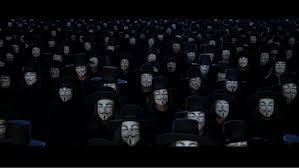And you thought that the worst thing about live action adaptations was pretty-boy casting and omitted content. The impulse to politicize your favorite fictions is nothing new, but last Sunday’s episode of Game of Thrones attempt at injecting a little dose of homophobia and mentions of legalized persecution of gay Westerosi managed only to rip viewers out of the emersion in a fantasy series. Bad enough? How about succeeding only in insulting the audience in the endeavor to produce something relatable.
In case I’m speaking alien, here is a pretty non-spoiler rundown of the scene in question. Lady Margaery Tyrell, wife of the late Renly Baratheon (the series’ closeted gay character until he was skewered) discusses her dead husband’s *coughs* inclinations with King Joffrey, first in his name and first child whom an entire fandom would like to see internally combust from the asshole out. In two seasons, Joffrey’s earned quite a lot of well-deserved hate and last week “homophobic bigot” was scribbled under a long list of dickery. The boy king, hoping to impress his fiancé with some old fashion persecution, offered to make that particular “degenerate” behavior punishable by death. Cute kid.

For a moment lets look back on the almost 15 years and thousands of pages during which George R. R. Martin laboriously crafted the world of A Song of Ice and Fire. In Westeros, being gay is not really as big a deal as the show depicts. I’m not saying it wasn’t frowned upon, but Renly’s sexual orientation was one of the worst kept secrets in the Seven Kingdoms and no one was really calling for his head over it. Other characters (not to be mentioned since they won’t debut until later this season) are more openly gay or bisexual and I promise that Joffrey was too busy being a little shit in other ways to care, let alone pass legislation. It’s not an idyllic world (far too much pillaging and rape goes on to claim that), but the intricacies and nuances of the behaviors of the noble class and clergy are far more complex than the show portrays.
Perhaps I’m making a big thing out of a small gripe, but other attempts at altering the politics of a fictional universe have entirely changed what the original creators were trying to communicate. Take the Wachowski-helmed adaptation of V for Vendetta. Great movie, but fans of the comic by Alan Moore will notice a big theme change from the anarchy vs. fascism message that Moore intended. The comic, which was a response to British politics in the 80’s, was in some ways reduced to feature American struggles with conservatism. An update for modern times or a dilution of art? Personally, I say that it’s better to be an original without a fan base than to re-appropriate the creativity and accomplishments of artists under the guise of an adaptation.

The worst result of this watering down of original content is that your favorite heroes and villains become more caricatures than characters. Alan Moore, in an interview about V for Vendetta, admitted that reducing his fascist characters to bland cut Nazis would serve nothing besides insulting the reader.
Hell, forget adaptations; listen in for the butchering of Anthony Burgess’ A Clockwork Orange. The original novel was purposely printed with twenty-one chapters, to represent the age of adulthood and structuring the novel in to a kind of twisted coming of age story. In the final chapter, droog Alex admits he has tired of the violence and drug-fueled hedonism of his youth and thus proving that there was no such concept of a “Clockwork Orange” (the idea that a man could be entirely controlled by either God or the devil). In the American publication of the book, this chapter is entirely omitted to better entertain American readers, which not only completely erases Burgess’ point but ruins the entire structure of the novel. The original American printing of the book instead ends sat the point that fans of the Kubrick film are familiar with, where Alex sarcastically states, “I was cured, alright.”(wink, wink) In other words, sorry Burgess, we know you wrote this great book and all, but the devil can wind the life of any person he pleases well as re-spin the tale that belonged entirely to your own creativity and efforts.*

What is this bullshit I’m waaaatching?
*In the most recent publication, Burgess’ forward describes the changes from the original text, though the last chapter is now printed with the rest of the novel
Funny how the modern audience is considered to have the ability to stomach the depictions of the worst aspects of humanity and yet too stupid or unfocused to grasp the alien complexities of an alternative universe. Which brings me back to Game of Thrones, a fantasy series. The nature of fantasy expects an escape from reality, so why do these adaptations need to be bogged down in relatable and familiar politics? For the Seven’s sake, let’s spend an hour a week in a world where perhaps bigotry and the legalized decapitations of homosexuals aren’t played up to an importance that doesn’t reflect the world built by the series’ original creator.
They keep the dragons and the magic but replace the foundations of the universe to be topical and relatable. How can we expect our own society to improve beyond irrational hatred if audiences aren’t given a chance to even fantasize of a world where other issues dominate politics?
Kaitlyn D
@deadrabbit92
Staff-writer











